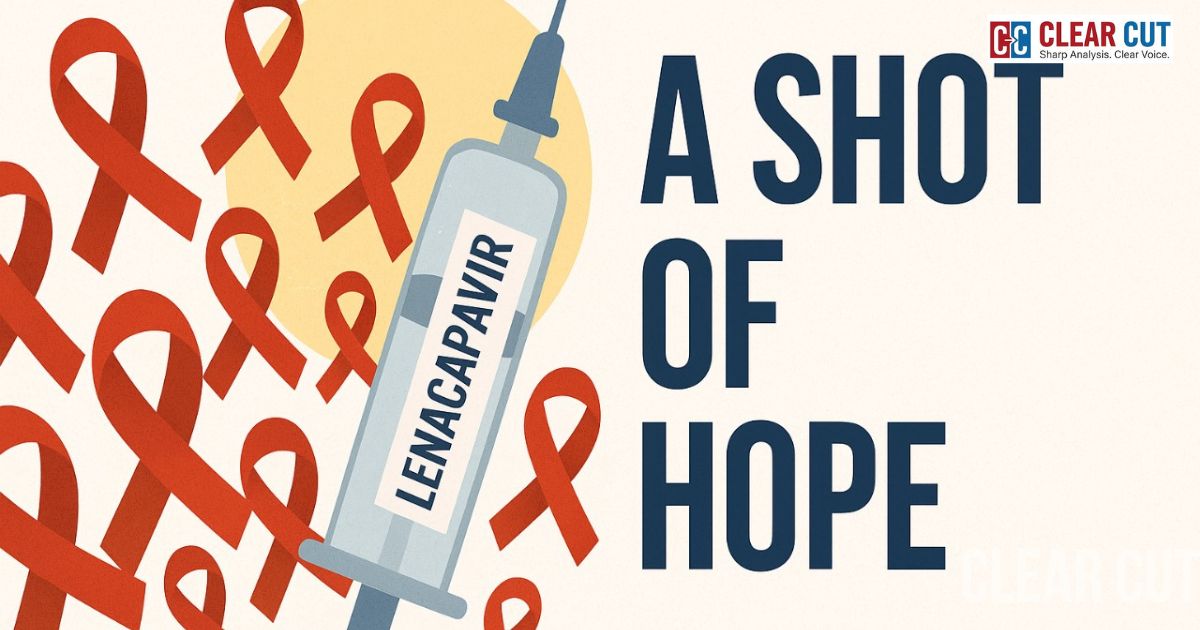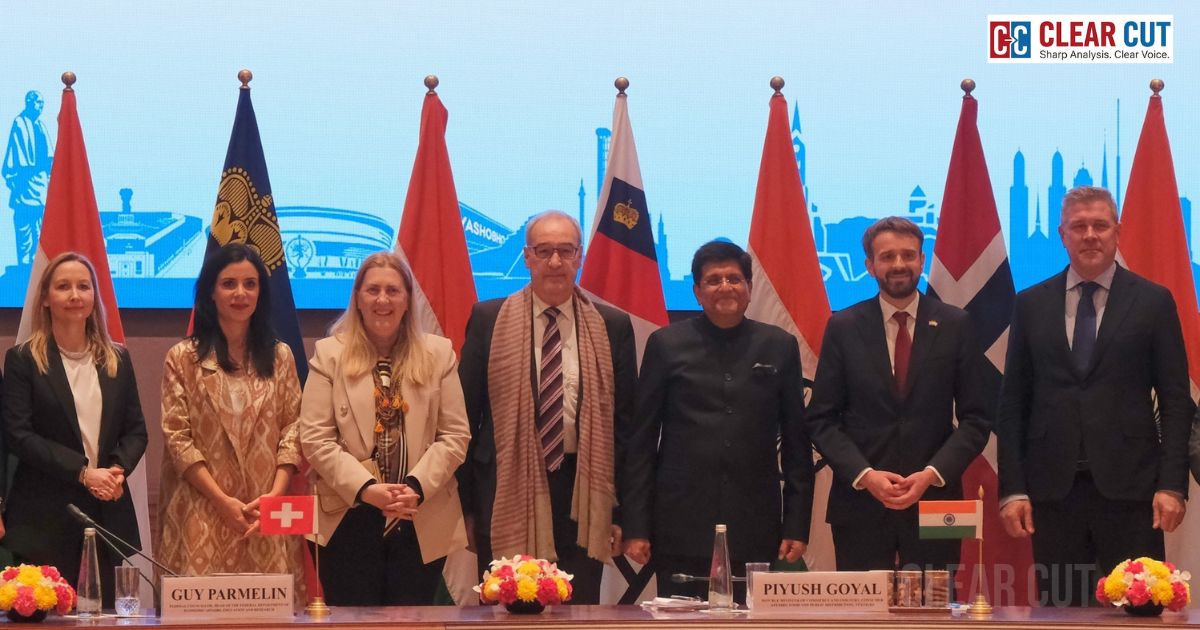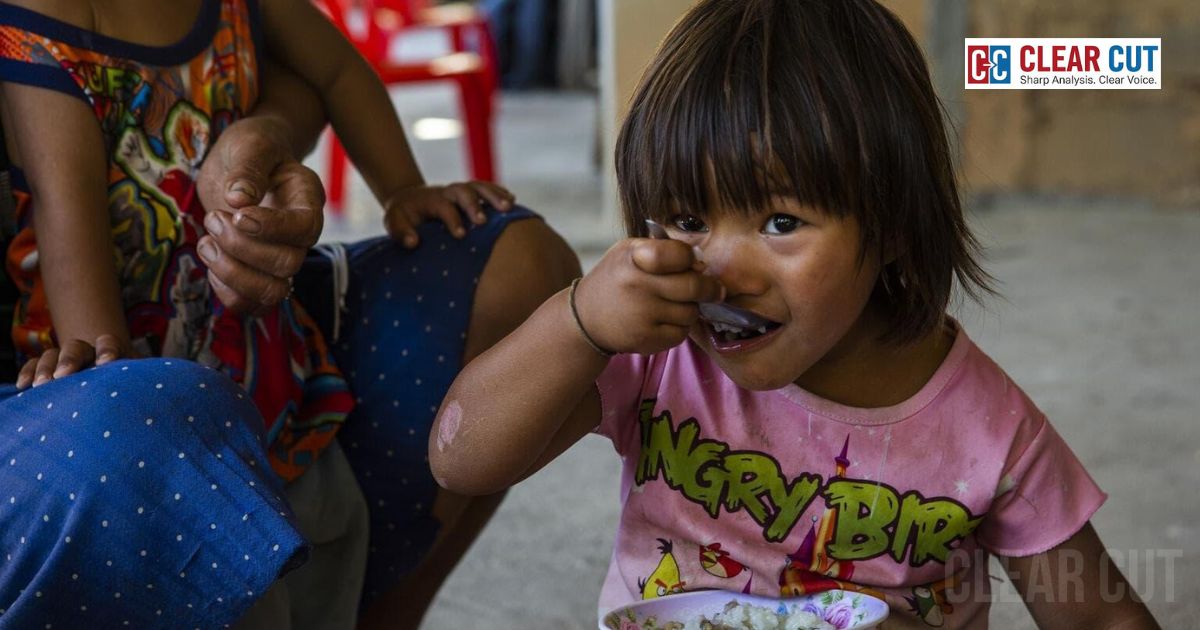Photo Credit: Parinita Mathur
Clear Cut Health Desk
New Delhi, UPDATED: Sep 26, 2025 11:58 IST
Written By: Raag Pratham
New York, 25 September 2025 — A once-distant dream of stopping HIV with a simple injection is now on the verge of becoming reality for millions of people in low- and middle-income countries. Under a landmark partnership announced this week, injectable Lenacapavir will be available from 2027 at an annual cost of $40 across 120 countries.
The deal brings together Dr. Reddy’s Laboratories, Unitaid, the Clinton Health Access Initiative (CHAI), and Wits RHI. Originally developed by Gilead Sciences, Lenacapavir is a twice-yearly injection that has demonstrated exceptional effectiveness in preventing HIV. It could transform the landscape of prevention, especially for people who struggle with the burden of taking daily oral PrEP pills.
Since 2010, coordinated global efforts have cut new HIV infections by 40%. Yet progress has slowed. UNAIDS data reveal that 1.3 million people were newly infected in 2024, showing the limits of existing tools. By bringing the cost of Lenacapavir in line with oral PrEP, this partnership addresses one of the biggest barriers to access: affordability.
Regulators have moved swiftly. The United States Food and Drug Administration and the European Medicines Agency granted approvals in record time, and the World Health Organization followed with a global recommendation in July 2025. In many cases, low- and middle-income countries wait more than a decade for access to new medicines. In this case, strategic interventions will make the product available less than 2 years after approval in high-income markets.
The agreement provides Dr. Reddy’s with financial, technical, and regulatory backing to deliver quality-assured generic versions of Lenacapavir by 2027. It is part of a larger strategy supported by multiple partners to create a competitive, sustainable market for long-acting HIV prevention. In parallel, the Gates Foundation secured a separate agreement with Hetero Labs, ensuring that supply will not rest on a single manufacturer.
Global health leaders hailed the move as historic. Dr. Philippe Duneton, Executive Director of Unitaid, described the price breakthrough as a direct response to communities’ calls for affordable access. He recalled how a similar approach with dolutegravir turned that treatment into the world’s most widely used HIV medicine. Former President Bill Clinton, Board Chair and Co-Founder of CHAI, called Lenacapavir “truly transformational” and said the partnership marked a fundamental shift in what is possible for prevention. Executives from Dr. Reddy’s emphasized their commitment to global patient access, while Wits RHI highlighted the importance of generics in ensuring that 6-monthly injections become a genuine choice for those who need them most.
The social development implications of this agreement extend far beyond the science. At a cost of $40 a year, protection becomes not only a medical tool but also an instrument of equity. It offers young women in sub-Saharan Africa, one of the groups most vulnerable to infection, a discreet and empowering option. It gives men who face stigma for seeking daily pills an alternative that does not expose them to scrutiny. It strengthens public health systems by reducing the need for constant follow-up visits, freeing up capacity for other services.
The ripple effects on education, economic opportunity, and gender equality are profound. When fewer people contract HIV, families are spared the financial strain of treatment costs, children remain in school, and communities preserve their productive workforce. This is how health interventions become engines of social progress.
Still, challenges remain. Voluntary licenses from Gilead extend to 120 countries but not to all. Unitaid has committed to work on access for those excluded. Moreover, integrating Lenacapavir into existing health systems will require careful planning, from training providers to ensuring supply chains. Countries will need policies that allow the medicine to be delivered in community settings, reaching people where they live.
Financial commitments from PEPFAR, the Global Fund, and the Children’s Investment Fund Foundation have already signalled momentum. Together they plan to procure Lenacapavir for prevention for up to 2 million people before generics arrive. These early efforts are critical for building demand and establishing delivery models that can be scaled.
Kate Hampton, CEO of the Children’s Investment Fund Foundation, described the agreements as a sustainable pathway toward ending the epidemic. She stressed that building a competitive market with multiple suppliers is the best guarantee of long-term affordability and reliability.
Beyond the numbers and contracts lies a deeper meaning. For many years, life-saving breakthroughs were mainly available to wealthy nations, while low-income countries waited. Lenacapavir represents a shift in how innovation is shared: affordable from the start, with multiple partners committed to ensuring that no community is left behind.
If delivered as planned, a single injection every 6 months could protect millions at the same cost as daily pills. It is a promise not only of prevention but also of dignity, equity, and hope. The fight against HIV is far from over, but this agreement proves that with vision, solidarity, and fairness, science can change the trajectory of an epidemic.




